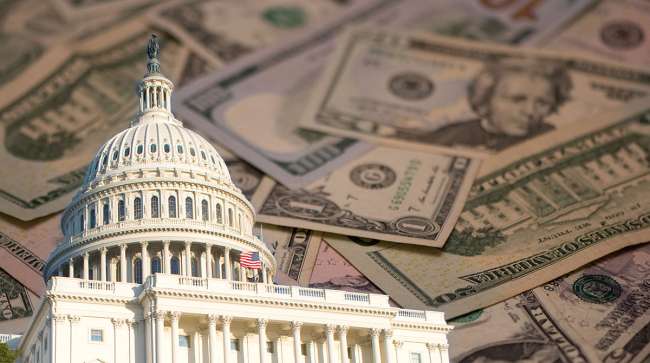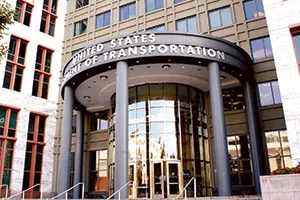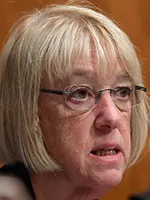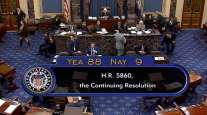Senior Reporter
Fiscal 2024 Transportation Funding Bills Await Votes

[Stay on top of transportation news: Get TTNews in your inbox.]
After committees approved versions of a fiscal 2024 transportation funding bill, Congress is unlikely to clear the legislation before its August recess.
While leaders in the House and Senate agree on the need for approving fiscal 2024 funding for the U.S. Department of Transportation, the measures’ consideration in the respective chambers has yet to be scheduled.
Congress has until Sept. 30 to advance its funding legislation for the upcoming fiscal year in order to avert a partial government shutdown.
Per transportation funding, the House and Senate legislative versions differ slightly, pointing to a need for reconciliation of their differences.

Department of Transportation via Facebook
Both versions would dedicate nearly $1 billion for the Federal Motor Carrier Safety Administration. Specific to trucking policy, the House and Senate bills would prohibit additional requirements — such as inward-facing cameras — for enrolling in a pilot training program for truck drivers younger than 21. Unlike the Senate bill, the House bill would deny funds for pursuing rules or regulations associated with equipping speed limiting devices on certain commercial vehicles.

Granger
On July 18, the House Appropriations Committee approved its fiscal 2024 measure. “This bill responsibly funds critical transportation infrastructure to ensure our roads, railways and air traffic control systems are safe and reliable,” said committee Chairwoman Kay Granger (R-Texas). Specifically, the House bill would dedicate $90.2 billion for the departments of Transportation and Housing and Urban Development.
House DOT Budget Outline
• Federal Highway Administration, $62 billion
• Federal Aviation Administration, $19.5 billion
• Federal Transit Administration, $14.6 billion
• Federal Railroad Administration, $1.4 billion
• National Highway Traffic Safety Administration, $1.2 billion
Compared with fiscal 2023, the House bill would increase funding levels by nearly $3 billion. If enacted, it would be nearly 9% less than the White House’s budget request for the upcoming fiscal year.
The Senate bill, approved in committee July 20, would dedicate $98.9 billion for the departments of Transportation and Housing and Urban Development. The bill would dedicate $16.8 billion for the FTA, $3.4 billion for the FRA and $20.2 billion for the FAA.
Safety is a major priority in the measure. “To address the rail safety deficiencies identified in the East Palestine, Ohio, train derailment, the bill provides a $32 million increase for FRA’s safety and operations budget — meeting the budget request level for rail safety inspectors and research,” according to background information the Senate committee provided.

Murray
“It’s critical we work to make sure people across our country can keep a roof over their head, aren’t left out in the streets and can get to where they need to be safely and efficiently — and that’s what this bill helps do,” Sen. Patty Murray (D-Wash.), chairwoman of the Senate Appropriations Committee, said soon after the bill’s approval. “This is a strong bipartisan bill that makes critical investments to address the shortage of air traffic controllers and reduce flight delays, improve rail safety after recent, deeply concerning derailments and continue investing in the infrastructure that helps Americans get to where they need to be.”
To avert a partial government shutdown, fiscal-year funding authority for USDOT and most federal agencies requires renewal before Oct. 1. Earlier this year, in a hearing before Congress, Transportation Secretary Pete Buttigieg defended President Joe Biden’s fiscal 2024 budget request. The president’s budget emphasized safety, supply chain connectivity and equity. It also proposed nearly $1 billion for FMCSA.
As he told a House panel, “Our transportation system is at a turning point.”
Want more news? Listen to today's daily briefing below or go here for more info:




